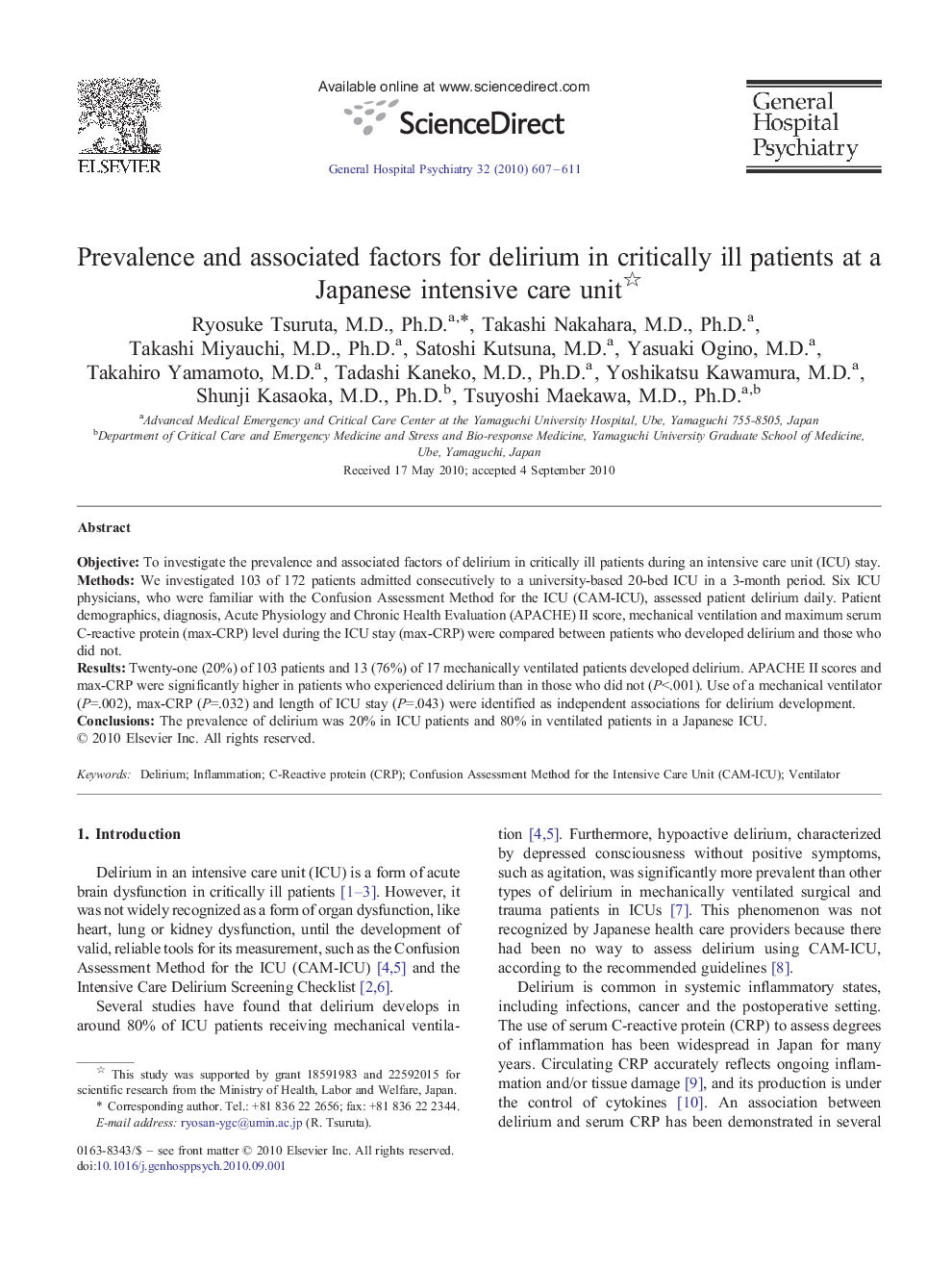| Article ID | Journal | Published Year | Pages | File Type |
|---|---|---|---|---|
| 3237890 | General Hospital Psychiatry | 2010 | 5 Pages |
ObjectiveTo investigate the prevalence and associated factors of delirium in critically ill patients during an intensive care unit (ICU) stay.MethodsWe investigated 103 of 172 patients admitted consecutively to a university-based 20-bed ICU in a 3-month period. Six ICU physicians, who were familiar with the Confusion Assessment Method for the ICU (CAM-ICU), assessed patient delirium daily. Patient demographics, diagnosis, Acute Physiology and Chronic Health Evaluation (APACHE) II score, mechanical ventilation and maximum serum C-reactive protein (max-CRP) level during the ICU stay (max-CRP) were compared between patients who developed delirium and those who did not.ResultsTwenty-one (20%) of 103 patients and 13 (76%) of 17 mechanically ventilated patients developed delirium. APACHE II scores and max-CRP were significantly higher in patients who experienced delirium than in those who did not (P<.001). Use of a mechanical ventilator (P=.002), max-CRP (P=.032) and length of ICU stay (P=.043) were identified as independent associations for delirium development.ConclusionsThe prevalence of delirium was 20% in ICU patients and 80% in ventilated patients in a Japanese ICU.
